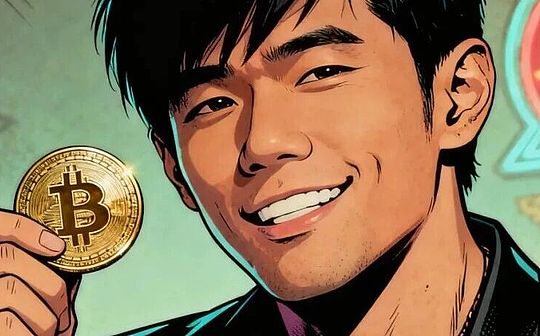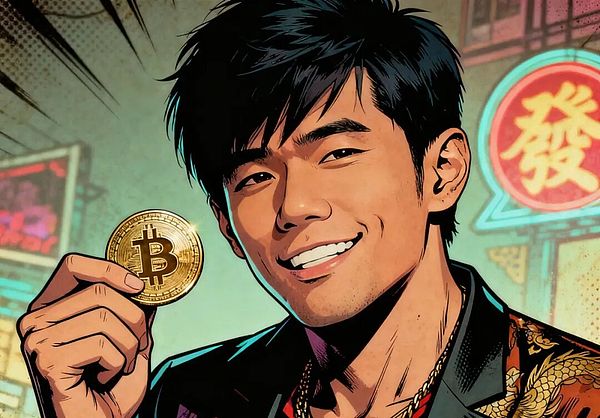
Author: Divine Grace
Trust in the crypto world has never been based on friendship.
“If you don’t show up again, you’re doomed.” Late at night on October 15, 2025, Jay Chou suddenly posted this line on IG, instantly igniting the entire Internet.The accompanying picture is a photo of his long-time friend and magician Cai Weize.

A dispute surrounding hundreds of millions of Taiwan dollars worth of Bitcoin investment began.According to media reports, Cai Weize’s Bitcoin account worth hundreds of millions of New Taiwan dollars, which he held for Jay Chou, was suddenly frozen a year ago on the grounds that the account was locked. Later, Cai Weize himself lost contact completely.
Even shrewd figures like King Jay Chou have stumbled in the field of cryptocurrency. What this exposes is not only a personal crisis of trust, but also a huge risk for the entire crypto asset holding market.
The “Magic” of Close Partners: From Stage Cooperation to Bitcoin Holding
The relationship between Jay Chou and Cai Weize is far from an ordinary business partner.Cai Weize is a well-known magician in Taiwan. He has appeared on “America’s Got Talent” and attracted international attention with his creative magic.He and Jay Chou became connected because of their shared love of magic. They have been regular guests on “Traveler” for a long time, and they have also participated in Jay Chou’s tours many times. They have a close relationship like “brothers”.
Based on this friendship, when Jay Chou needed to get involved in cryptocurrency investment, he naturally thought of this “knowledgeable” friend.Around the first half of 2024, Jay Chou consulted Cai Weize for Bitcoin investment advice. Cai Weize claimed to be “quite experienced in the blockchain circle” and finally persuaded Jay Chou to entrust him to handle the Bitcoin account on his behalf.
The amount of entrustment held is as high as hundreds of millions of New Taiwan dollars (approximately 30 million to 50 million US dollars), all Bitcoin-related assets.The cooperation method adopts the strategy of “long-term holding + dispersed allocation”. Cai Weize has full authority to operate. The two parties seem to have only verbal agreements and no formal contracts, and it is completely based on friendship.
In the cryptocurrency circle, this kind of “acquaintance holding” is not uncommon.Although many high-net-worth individuals are interested in the crypto market, they are limited by time, energy and professional knowledge, so they often choose trusted acquaintances to operate on their behalf.However, this model is far more fragile than most people imagine.
Red flags: From “account locked” to complete loss of contact
Problems began to surface in early 2025.Cai Weize claimed that his Bitcoin account was “locked for some reason” and Jay Chou was unable to withdraw funds.At that time, he promised to unlock it as soon as possible and said that many people were asking him for money.Based on trust, Jay Chou gave him time to solve it.
However, this wait lasted a whole year.During the spring and summer of 2025, Cai Weize’s phone was turned off and his social account was suspended, leaving only a “statement in English with white letters on a black background”: “Temporarily leaving the social platform and will not reply to messages during this period.” Then he completely “disappeared” and his whereabouts are unknown (there are rumors that he may have fled to Southeast Asia).
Faced with this situation, Jay Chou finally “broken his guard” late at night on October 15, 2025, posted two consecutive “Looking for Person” posts on IG, and canceled his follow on Cai Weize.From close “brothers” to “creditors” who are publicly searching for someone, this crisis of trust completely erupted on social media.

What is even more embarrassing is that another magician, Chen Guanlin, was accidentally “shot” because of this.Some media misread Jay Chou’s post and mistakenly used Chen Guanlin’s photo in the report, causing him to be mistaken for the person involved in the case, causing strong dissatisfaction among netizens and people in the magic circle.Chen Guanlin had to make a clarification through social platforms and received support from many fans [citation:1.
Common risks of entrustment in the currency circle: Why can’t even Jay Chou escape?
What happened to Jay Chou is not an isolated case, but a common dilemma faced by celebrities and even ordinary investors in the encryption market.
1. Lack of legal agreement
Virtual currency holdings are currently in a legal gray area.my country has made it clear that virtual currency-related business activities are illegal financial activities, and virtual currency transactions are not protected by law.Even if there is an agency agreement, if the content violates laws, regulations or public order and good customs, it may be deemed invalid.
In Jay Chou’s case, the two parties only had a verbal agreement and lacked a clear legal agreement.Once problems arise, it is extremely difficult to safeguard rights.
2. Due to the characteristics of crypto assets
Transactions in cryptocurrencies such as Bitcoin are irreversible and completely dependent on private key control.Once the private key or account authority is controlled by others, the assets will be completely out of the control of the actual owner.This is a common warning in the currency circle: “It’s not your keys, it’s not your coins.”
When Cai Weize controls the private key of the account, it will be difficult for Jay Chou to actually recover the assets even through legal means.
3. The regulatory twilight zone
Compared with traditional financial products such as stocks and funds, there are almost no unified rules governing the holding behavior of cryptocurrency.Once a dispute occurs, investors who want to protect their rights through legal channels will face the dilemma of “difficulty in obtaining evidence, difficulty in characterization, and difficulty in enforcement.”
Although Jewel Music has received court demand documents, due to the anonymity and cross-border nature of crypto assets, it is extremely difficult to actually recover the assets.
Celebrity Crypto Investment Traps: Painful Lessons from Jaylen Bear to Brother Moji
Jay Chou is not the only celebrity to experience setbacks in the crypto market.Looking back at the cases in recent years, we can find an obvious trajectory of “star encryption investment trap”.
Jay Chou’s own PhantaBear NFT projectIt once set a record of selling out 10,000 units in 40 minutes and earning over 62 million yuan.However, after a brief surge in the secondary market, this project began to plummet with the crypto bear market. In less than half a year, the floor price fell by 96.6% from its highest point, and liquidity was almost exhausted.
Taiwan’s “Maji Big Brother” Huang LichengThe experience was even more ups and downs.He operated Ethereum and other assets on the Hyperliquid platform and made book profits of up to US$44.5 million in more than 20 days. He was dubbed a “Legend in the Currency Circle.”However, due to market fluctuations, his leveraged Ethereum position was forced to be liquidated. Not only did he give up all his profits, he also suffered an additional loss of US$10 million, with a total loss of US$54.5 million.
In contrast,JJ LinAdopting a more robust crypto investment strategy, he not only purchased Jay Chou’s PhantaBear NFT to support friends, but also held collections from leading projects such as BAYC, forming a combination of “mainstream projects + acquaintance projects”, which allowed him to suffer relatively limited losses in market fluctuations.
Together, these cases reveal the common pitfalls of celebrity crypto investments:Over-reliance on personal influence and neglect of professional risk control,as well asChasing hot topics without long-term value judgment.
Cryptoasset security: How to avoid becoming the next “Jay Chou”?
For ordinary investors, what lessons can be learned from the Jay Chou incident?
1. Control of core assets must be in your own hands
No matter who the other party is, even if they are friends for many years, the control of the core assets must be in their own hands.”Leave your money to others to take care of” should always be cautious.
For crypto-assets, this means that the private keys must be kept to yourself and avoid storing assets in wallets controlled by others.If you need to entrust a professional organization to manage, you should also choose a regulated and qualified formal platform.
2. Put an end to blind trust in “endorsement of favors”
Celebrities, like ordinary investors, are prone to relax their vigilance due to “introductions from acquaintances”.However, in the field of investment, especially in high-risk markets such as crypto assets,Emotional trust is never a substitute for professional evaluation and compliance processes.
Even the closest friends should “Establish evidence first, trade later”, clarifying the rights and obligations of both parties, as well as possible risk handling mechanisms.
3. Adopt multiple safety protection measures
For crypto assets, multiple security measures should be adopted: use hardware wallets to cold store assets, enable two-factor authentication, regularly review account authorizations, etc.Although these technical measures cannot 100% eliminate risks, they can greatly improve asset security.
Trust in the crypto world must be based on technology
What happened to Jay Chou is a warning, not only to celebrities, but also to all participants in the crypto market.
In the world of blockchain, “code is law” is an iron law, and trust cannot replace technology and legal protection.The most powerful magic is not to conjure wealth, but to protect one’s assets.
When “acquaintance trust” conflicts with the technical rules of the blockchain, investors can only avoid becoming victims of similar incidents by putting security awareness above emotions and interests.
As of press time, Cai Weize is still out of contact, and Jay Chou has initiated legal proceedings through lawyers.How this “magic” worth hundreds of millions of dollars will end, the entire crypto community is paying close attention to.
Regardless, this incident has taught everyone a profound lesson:In the crypto world, overtrust is sometimes the most dangerous magic trick.






